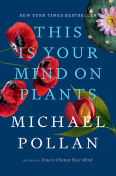 “This Is Your Mind on Plants” tells the story of psychoactive drugs derived from plants through two approaches: research-based journalism/history and experiential memoir. It focuses on three chemicals (opium, caffeine and mescaline) and the plants that make them as a way of exploring the larger history and meaning of our use of plants medicinally, spiritually and recreationally.
“This Is Your Mind on Plants” tells the story of psychoactive drugs derived from plants through two approaches: research-based journalism/history and experiential memoir. It focuses on three chemicals (opium, caffeine and mescaline) and the plants that make them as a way of exploring the larger history and meaning of our use of plants medicinally, spiritually and recreationally.
I enjoyed author Michael Pollan’s sense of humor and ability to make complex ideas approachable. I also appreciated that he maintained a healthy skepticism towards all views of consciousness-changing drugs, suspicious of both those who exploit them and those who seek to totally prohibit their use.
The discussion of caffeine was particularly interesting because so few people conceptualize it as a psychoactive, habit-forming drug now, but it was incredibly controversial whenever it was introduced to a part of the world where it had not been known before. Pollan tied the specific history of coffee to wider subjects such as colonialism and industrialization, making compelling arguments that they were inextricably tied together.
The author narrates the audiobook version and does an excellent job of it, taking a straightforward, conversational tone that underscores the social and emotional realities present in the historical and scientific data.
Three words that describe this book: informative, thought-provoking, surprising
You might want to pick this book up if: you are interested in social history from the 1700s to the present day and the ways in which views of drugs have changed over time.
-Eric
This reader review was previously submitted as part of Adult Summer Reading. We will continue to share these throughout the year.
It being Spring, I’m digging and planting in my small garden out front of my condo. Past owners’ work shows up in the hostas that I’ve just about killed off (I don’t like them), in the misshapen Rose of Sharon bushes, in the landscaping fabric laid down possibly a decade ago and which I am pulling out as it gets in my way. Each year I put down more mulch to try to fight back the weeds, yet we still only have about three inches of sort-of-good soil over the clay backfill and it’s amazing how quickly the mulch breaks back down into lifeless dust. I’ve only had a butterfly plant thrive out there, and that only because it is planted up against the composter. So I am learning how to better garden this year.
There is information about native plants that thrive and soil-building here at the library, in our books, and also in our online resources. I’ve also used our library for a deep dive into travel writing, something I want to try this Summer. There are some great classes on photography, both for my travel writing and also for how to get great images for selling vintage online, maybe on Etsy. Do you have that sort of curiosity, always exploring and learning? Personally, I think no one should ever stop investigating the things they love. This is known as lifelong learning and is a handy skill for an adult to develop.

Lifelong learning is broadly defined as the ongoing, voluntary, and self-motivated pursuit of knowledge for either personal or professional reasons. Library folk are usually passionate about providing you, our patrons, with as many opportunities for learning as possible. We love to share new offerings with you! Come up to any public service desk and we will help you find the best resources for your quest.
Continue reading “Learn More About our Lifelong Learning Resources”
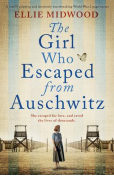
“The Girl Who Escaped from Auschwitz” is about a woman prisoner in an Auschwitz concentration camp who is brave and smart in the face of absolute terror. She manages to fall in love with another prisoner while in the camp, and together they make a plan for escape. The book describes true events within the camp and the characters are based on real people. It portrays the cruelty the prisoners were subjected to in great detail and shows how people had to rely on each other to make things happen. The build-up to their escape, the days of freedom, and their ultimate capture were all very well portrayed and the emotion of the story was very strong. I love the book; it was well written and the historical accuracies made it even more interesting.
Three words that describe this book: Heartbreaking, Intense, Historical
You might want to pick this book up if: I recommend everyone pick up this book.
-AshLee
This reader review was previously submitted as part of Adult Summer Reading. We will continue to share these throughout the year.
A-B-C-D
The world is better with you and me!
“All Together Now” is the theme of the Daniel Boone Regional Library’s 2023 Summer Reading program, and it’s all about kindness and togetherness.
Summer Reading is free and open to all ages — babies through adults — and participants can earn prizes for reading and completing activities! Get a leg up on your reading with these books celebrating friendship, teamwork and community. Continue reading “Literary Links: Summer Reading 2023”
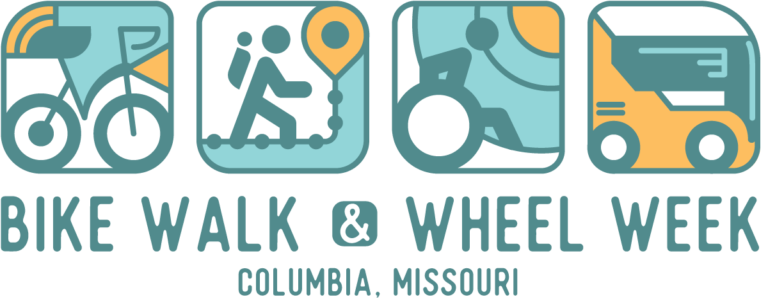 Bike, Walk, and Wheel Week is one of my favorite Columbia events, the time when our community celebrates what my husband and I try to do year round. We have attempted to build our daily lives around minimizing car use.
Bike, Walk, and Wheel Week is one of my favorite Columbia events, the time when our community celebrates what my husband and I try to do year round. We have attempted to build our daily lives around minimizing car use.
I’ve spent decades walking regularly, both for transportation and recreation. But lately I’ve been focusing on building up my cycling stamina with a specific goal in mind. I want to be able to accompany my spouse occasionally on his weekly rides to the Big Bur Oak in McBaine, where he takes a series of photos to document changes in the tree over seasons and years. The photos from this passion project of his can be seen at bigburoak.com.
Though I firmly believe ambling aimlessly with enjoyment of the moment is a fine use of time, I want to focus on a few books about folks who have a set purpose to their non-motorized travels. Continue reading “Bike, Walk, and Wheel With a Purpose”
Do you love fiction tinged with melancholy? Mysterious, irresistible protagonists with rich inner lives? Stories that leave you with a feeling of stillness, and hope? Here are four pieces of fiction I’ve enjoyed this year. Maybe there’s something here for you!
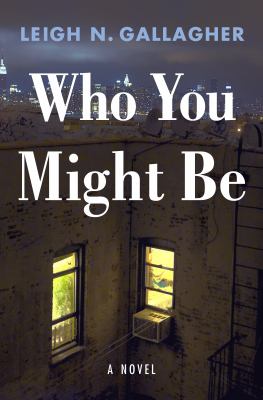 I picked up “Who You Might Be“off the first floor New Books display. I was drawn to the cover’s soft blue cityscape. The illuminated windows in the foreground intrigued me — what little lives might be unfolding within those frames? In her debut novel, Leigh N. Gallagher weaves together a story of astonishing breadth and dimension. If you’re in it for the character development (the growth and redemption, along with the occasional fall from grace), this is the book for you. Continue reading “Four Fiction Recommendations”
I picked up “Who You Might Be“off the first floor New Books display. I was drawn to the cover’s soft blue cityscape. The illuminated windows in the foreground intrigued me — what little lives might be unfolding within those frames? In her debut novel, Leigh N. Gallagher weaves together a story of astonishing breadth and dimension. If you’re in it for the character development (the growth and redemption, along with the occasional fall from grace), this is the book for you. Continue reading “Four Fiction Recommendations”
 Of course, I read “The Odyssey” and “The Iliad” in high school (do they still cover those these days?) and I even got through a few others like “Antigone,” but to be honest, I was not much of a fan. It was all about men doing manly things and often horrible things. The women were all witches or victims or passive wives and slaves. I didn’t find much in it that I could relate to.
Of course, I read “The Odyssey” and “The Iliad” in high school (do they still cover those these days?) and I even got through a few others like “Antigone,” but to be honest, I was not much of a fan. It was all about men doing manly things and often horrible things. The women were all witches or victims or passive wives and slaves. I didn’t find much in it that I could relate to.
Continue reading “The Women of Ancient Greece”
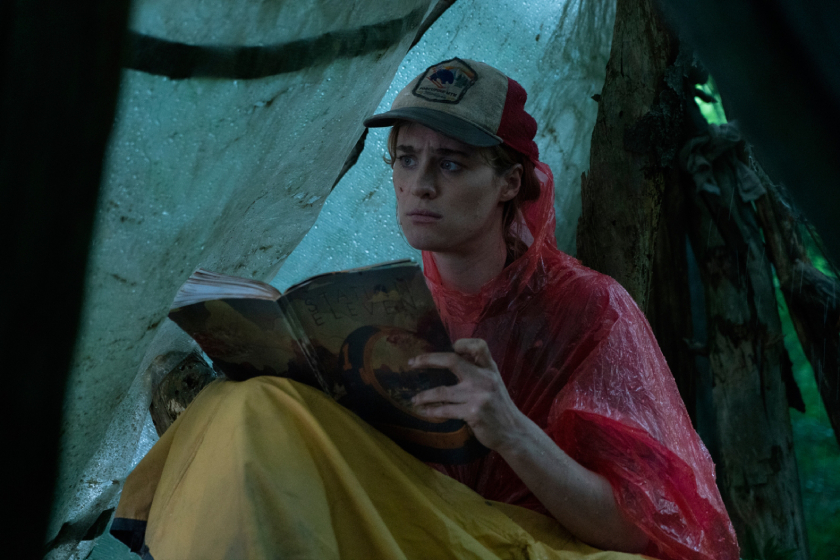
Here is a new DVD list highlighting various titles recently added to the library’s collection.
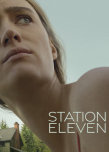 “Station Eleven”
“Station Eleven”
Miniseries
Website / Reviews
This dramatic limited series is based on a book by Emily St. John Mandel that was a community One Read in 2015. It is a post-apocalyptic saga spanning multiple timelines telling the stories of survivors of a devastating flu as they attempt to rebuild and reimagine the world anew while holding on to the best of what’s been lost. Continue reading “New DVD List: Station Eleven, Living, & More”
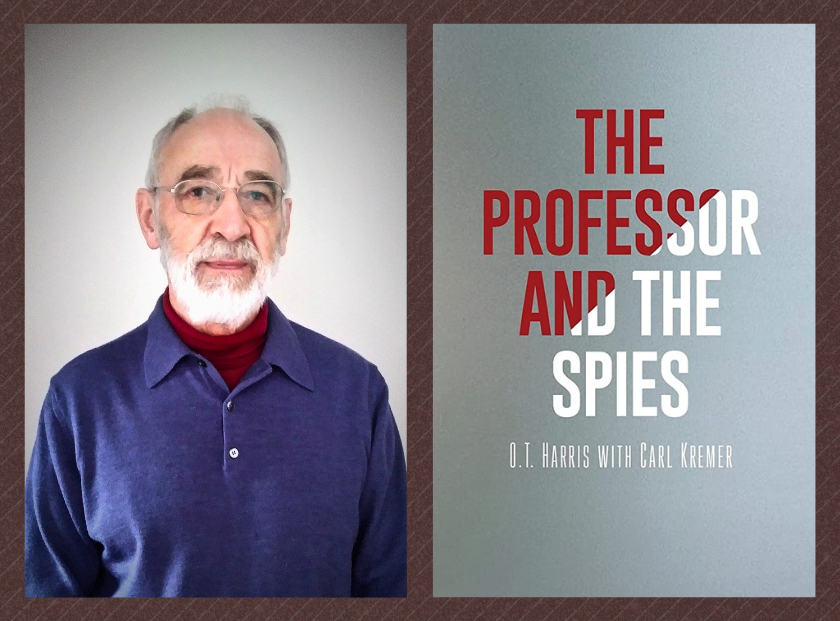
Carl Kremer is a Fulton, MO writer who has co-authored and finished a novel started by the late O.T. Harris called “The Professor and the Spies.” Harris, a retired banker from Fulton, began writing the novel in his 80’s, but after he died his friend Kremer helped finish the novel. The fictional book starts with a professor researching the security measures behind Winston Churchill’s 1946 Iron Curtain speech in Fulton, MO, with the narrative bouncing to various international locales featuring spies, drinking, romance, intrigue and dark secrets. Kremer is a retired William Woods University English professor who has written essays and short stories but this is his first published novel. He was kind enough to take the time to be interviewed via email. Continue reading “Q&A With Carl Kremer, Co-author of “The Professor and the Spies””
Below I’m highlighting some nonfiction books coming out in May. All of the mentioned titles are available to put on hold in our catalog and will also be made available via the library’s Overdrive website on the day of publication in eBook and downloadable audiobook format (as available). For a more extensive list of new nonfiction books coming out this month, check our online catalog.
Top Picks
 “The Power of Trees: How Ancient Forests Can Save Us if We Let Them” by Peter Wohlleben, Jane Billinghurst (translator) (May 2)
“The Power of Trees: How Ancient Forests Can Save Us if We Let Them” by Peter Wohlleben, Jane Billinghurst (translator) (May 2)
An illuminating manifesto on ancient forests and how they adapt to climate change by passing their wisdom through generations, and why our future lies in protecting them. In his beloved book “The Hidden Life of Trees,” Peter Wohlleben revealed astonishing discoveries about the social networks of trees and how they communicate. Now, in “The Power of Trees,” he turns to their future, with a searing critique of forestry management, tree planting, and the exploitation of old growth forests. As human-caused climate change devastates the planet, forests play a critical role in keeping it habitable. While politicians and business leaders would have us believe that cutting down forests can be offset by mass tree planting, Wohlleben offers a many tree planting schemes lead to ecological disaster. Not only are these trees more susceptible to disease, flooding, fires, and landslides, we need to understand that forests are more than simply a collection of trees. Instead, they are ecosystems that consist of thousands of species, from animals to fungi and bacteria. The way to save trees, and ourselves? Step aside and let forests — which are naturally better equipped to face environmental challenges — to heal themselves. With the warmth and wonder familiar to readers from his previous books, Wohlleben also shares emerging scientific research about how forests shape climates both locally and across continents; that trees adapt to changing environmental conditions through passing knowledge down to their offspring; and how old growth may in fact have the most survival strategies for climate change. At the heart of “The Power of Trees” lies Wohlleben’s passionate that our survival is dependent on trusting ancient forests, and allowing them to thrive. Continue reading “Nonfiction Roundup: May 2023”
 “This Is Your Mind on Plants” tells the story of psychoactive drugs derived from plants through two approaches: research-based journalism/history and experiential memoir. It focuses on three chemicals (opium, caffeine and mescaline) and the plants that make them as a way of exploring the larger history and meaning of our use of plants medicinally, spiritually and recreationally.
“This Is Your Mind on Plants” tells the story of psychoactive drugs derived from plants through two approaches: research-based journalism/history and experiential memoir. It focuses on three chemicals (opium, caffeine and mescaline) and the plants that make them as a way of exploring the larger history and meaning of our use of plants medicinally, spiritually and recreationally.









